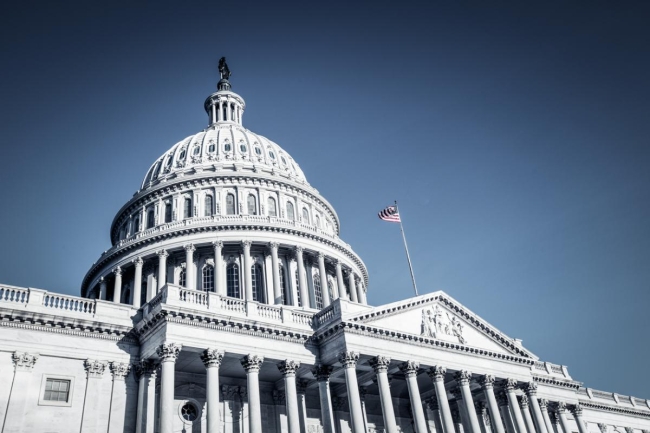You have /5 articles left.
Sign up for a free account or log in.

istockphoto.com/uschools
Though it was immediately trashed by the Senate’s Republican majority as dead on arrival, House Democrats on Tuesday proposed a mammoth fourth stimulus package that would provide the possibility of more money for colleges and universities, specify that undocumented students are eligible for emergency grants, and expand relief for student loan borrowers beyond what was contained in the CARES Act.
Lobbyists representing colleges and universities were studying the massive, 1,800-page HEROES Act last evening. But as part of the $3 trillion package, House Democrats proposed giving states the $500 billion in aid governors have asked for to deal with the financial fallout of the pandemic. Colleges and universities had supported the aid in the hopes of softening state funding cuts to higher education as they try to fill billions of dollars in budget shortfall.
As Inside Higher Ed first reported, the proposal also includes money for colleges and universities. The bill features $37 billion, including $27 billion from a $90 billion state fiscal stabilization, in a fund that would also support K-12 education. Another $10.5 billion would go to colleges and universities to help with pandemic-related costs, including $1.7 billion for historically black colleges and universities and minority-serving institutions.
However, the money was short of the $50 billion colleges had asked for, saying the $14 billion they got in the CARES Act was not enough. But importantly to colleges fearing massive state budget cuts as in the last recession, the bill would require states that receive the money to maintain spending on higher education.
While the money will help, the Institute for College Access & Success said, “State budget shortfalls may total about $650 billion over the next several years, according to the Center on Budget and Policy Priorities. Considering the severe budgetary challenges facing states, Congress must dedicate additional substantial funding to support both K-12 and higher education.”
The proposal also contained a litany of proposals pushed by progressives. It clarified that a federal prohibition on benefits to undocumented immigrants contained in the welfare reform bill passed during the Clinton administration does not apply to emergency grants under the CARES Act. U.S. Education Secretary Betsy DeVos angered Democrats as well as colleges when she said college students brought illegally to the United States as children do not qualify for the aid because of the prohibition.
The proposal also would make clear the grants are not subject to income taxes.
House Democrats also proposed extending the reprieve from making monthly student loan payments interest free in the CARES Act for an additional year, to Sept. 30, 2021. The bill also would grant the reprieve to borrowers, like those with Perkins loans, who were excluded from the CARES Act, and instructs the Education Department to make the borrowers whole, as if they had been included in the previous package.
Though Senate Republicans blocked its inclusion in the CARES Act, House Democrats again proposed that the federal government automatically write off $10,000 of each borrower’s student debt. They also proposed to eliminate the debt of borrowers who have been found by the Education Department to have been defrauded by their colleges.
However, Republicans who control the Senate quickly dismissed the proposal. “It’s not going anywhere,” Senator John Thune, of South Dakota and the Senate’s second highest-ranked Republican, said at a news conference, calling the proposal a “$3 trillion laundry list of agenda items that have nothing to do with the coronavirus.”
Senator John Barrasso, a Wyoming Republican, at the event said, “What [House Speaker] Nancy Pelosi is proposing will never pass the Senate.”
Instead, Senate Majority Leader Mitch McConnell repeated his comments over the past several weeks that Congress should pause before passing another expensive relief bill. "We’re taking a look at what we’ve already done, adding $3 trillion to the national debt, and assessing the effectiveness of that before deciding to move forward," he said.
If Republicans and the Trump administration decide another bill is necessary, McConnell said it will be much more targeted to the problems caused by the pandemic than the Democrats' plan.
Still, Senator Chuck Schumer, of New York and the Senate’s top Democrat, predicted at another news conference that public pressure would force McConnell to pass another stimulus package.




